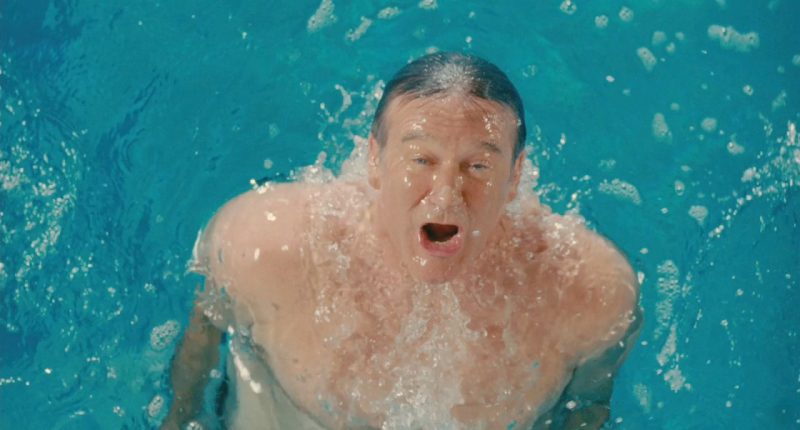Ridiculous Gang
If Bobcat Goldthwait is famous at all, he’s famous for being the comedian whose obnoxious, caterwauling scream-spasm is featured in the Police Academy movies. He debuted in Police Academy 2: Their First Assignment as Zed, the obnoxious leader of a gang called the Scullions. He returned for Police Academy 3: Back in Training to play Zed, an obnoxious new cadet in the wackily dysfunctional police department. In Police Academy 4: Citizens on Patrol, he plays Zed, an obnoxious police officer in love.
On the strength of his performance in the Police Academy franchise, Goldthwait won the lead role in Hot to Trot, a movie in which John Candy voices a horse who gives Goldthwait’s Zed-like broker character investment advice. He performed unhinged stand-up in televised concert specials. He was a guest on The Howard Stern Show. He starred in Twisted Sister’s music videos for “Leader of the Pack” and “Be Chrool to Your Scuel.”
Thus began the career of one of America’s most compelling filmmakers.
Refusal
Bobcat Goldthwait has written and directed five movies: an absurd comedy called Shakes the Clown, an excessively cruel pseudo-documentary called Windy City Heat, a romantic comedy about bestiality called Sleeping Dogs Lie, a comedy about child suicide called World’s Greatest Dad, and a ranting road-trip movie called God Bless America that I haven’t seen because it hasn’t been released yet. His movies have debuted at Sundance and the Toronto International Film Festival. He’s been acclaimed by John Waters and is admired, supposedly, by Martin Scorsese. The Boston Globe deemed Shakes the Clown “the Citizen Cane of alcoholic clown movies,” which is surely the only time anyone from the Police Academy franchise has been compared favorably to Orson Welles.
His films are stylistically diverse, insistently cynical, and consistently baffling. They are disorienting and unflinching. They employ the clichés of Hollywood movies as a means of mercilessly mocking convention and sentiment. They are flawed films that refuse to entertain.
Failure
The first Goldthwait-directed movie I saw was World’s Greatest Dad. My friend had seen it on the shelf at Hastings, a western chain of stores that combines features of Blockbuster and Borders but remains in business, and saw a sad-looking Robin Williams on the cover and rented it, hoping it might be something like One Hour Photo or Death to Smoochy.
He brought it over to my house, and they have medical marijuana in Montana, where...
You have reached your article limit
Sign up for a digital subscription and continue reading all new issues, plus our entire archives, for just $1.50/month.
Already a subscriber? Sign in





